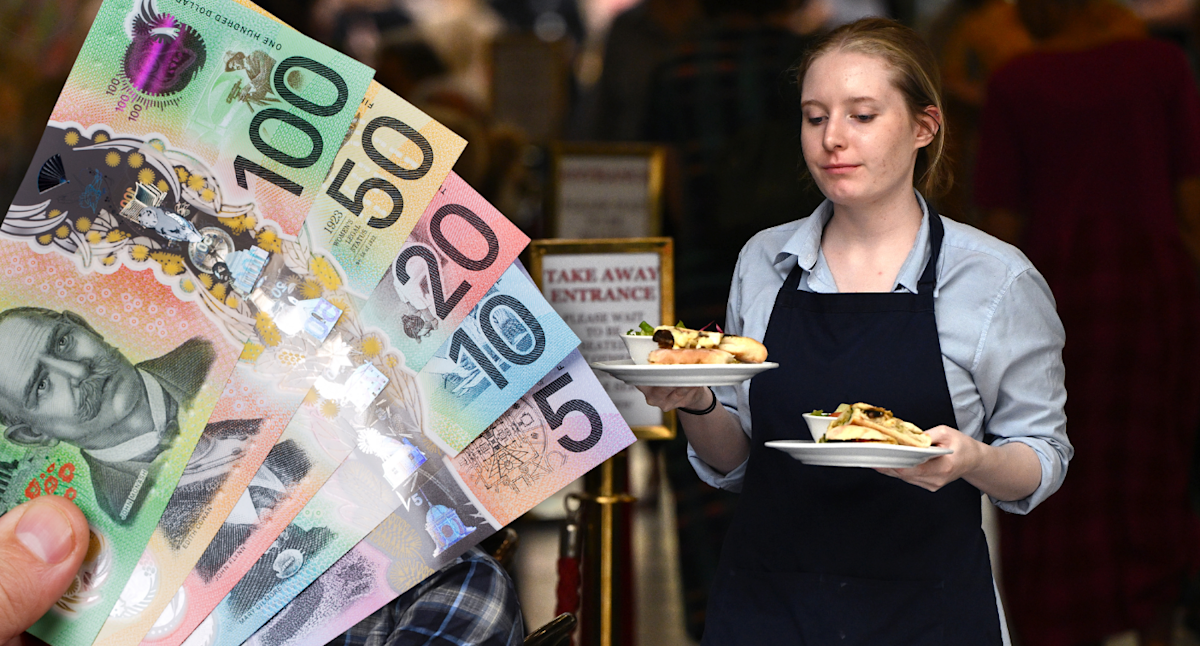The average impacted worker missed out on $1,730 in superannuation in the 2022-23 financial year. (Source: Getty/AAP)
Australians are losing $5.7 billion in retirement savings each year due to employers not paying their superannuation entitlements correctly, new analysis of Australian Taxation Office (ATO) data has revealed. The huge losses have sparked calls for ‘payday super’ reforms to be passed when parliament returns this month.
About 3.3 million Australians missed out on superannuation entitlements, averaging $1,730, in the 2022-2023 financial year, Super Members Council analysis of taxation data found. The amount of super going unpaid increased by $600 million from the previous year, with workers now losing $110 million each week.
More than one million people were underpaid super in New South Wales at an average of $1,760, more than 848,000 in Victoria at an average of $1,670, and more than 679,000 in Queensland, missing out on an average $1,720.
RELATED
Payday super reforms will mean employers are required to pay their employees’ superannuation at the same time as their salary and wages. Under the current rules, it only has to be done quarterly.
The reform, first announced in May 2023, is due to come into effect from July next year. However, it has not yet been legislated by the government.
Super Members Council Deputy CEO Georgia Brumby said any delays to the law would mean less money in retirement for Australians, which means “less money to pay the bills after a lifetime of hard work”.
“The sooner this legislation is introduced and passed, the more time and certainty it will give businesses and the super payment system to prepare — so all workers can get paid their super on time and in full,” she said.
“Payday super will not only stamp out unpaid super — it’ll put nearly $8,000 more in the average Australian’s pocket at retirement, thanks to more frequent payments and the power of compounding.”
Do you have a story to share? Contact tamika.seeto@yahooinc.com
Leading accounting bodies have been calling on the government to delay the planned start date of the legislation.
CPA Australia, CA ANZ and the Tax Institute said they all support the plan but have argued the July 1, 2026 date is “unreasonable” and “should be deferred for, ideally, 24 months, but at least 12 months”.
They have argued the payment of super is more complex than wages and involves clearing houses, payment gateways and super funds.
Story Continues
Employers will be given a seven-calendar-day deadline from the payment of wages to pay superannuation. If this is missed, they will be liable for an updated super guarantee charge which would include the shortfall, daily interest and an extra enforcement charge.
In November, the ATO revealed its actions had led to $932 million in previously unpaid super reaching the retirement accounts of 797,000 employees in the past year.
The ATO noted that more than 92 per cent of super entitlements were paid without the need for ATO intervention. Employees can check their super account via myGov to see what super payments have been paid into their funds.
If you suspect your super hasn’t been paid in full, on time and to the correct fund, the ATO recommends checking with your employer and your nominated super fund.
You can report unpaid super to the ATO.
Get the latest Yahoo Finance news – follow us on Facebook, LinkedIn and Instagram.

